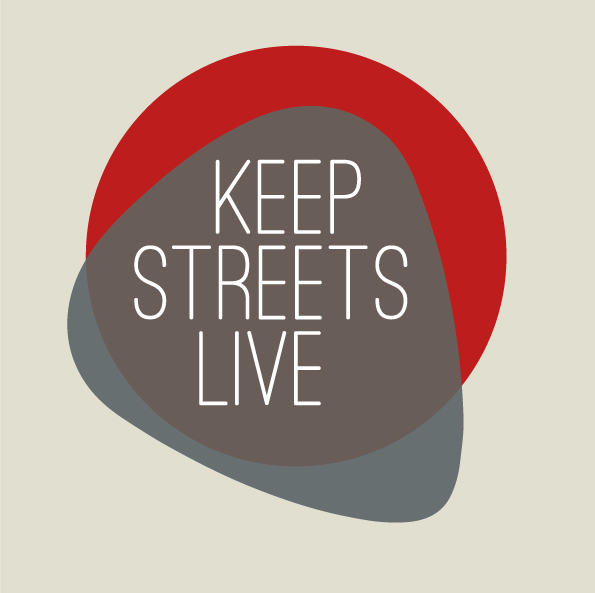Response To High Court Decision


Next Stop: The Court of Appeal!
Our date with Lady Justice was bittersweet. Our barrister David Wolfe QC convincingly put forward the case that Camden’s scheme is unlawful. It is too wide, it even criminalises unamplified singing in the streets for fun and spans the entire geographical breadth of Camden turning all public spaces into ‘no go areas’ for ‘unauthorised’ live music when the vast majority of complaints pertain to Camden Town. It interferes with Article 10 Rights (Freedom of Expression) in a manner and to an extent that is in no way justified by any pressing social need. Musical ideas are entitled to protection just as written and political ideas are, and they often intertwine as Pete Seger, Bob Dylan, Phil Ochs, Joan Baez and many others could attest. What does it say about our society when playing music or singing for your pleasure and that of other people is turned into a potential criminal offence subject to draconian police-backed license controls?
Camden’s barrister was reduced to repeating the Orwellian proposition that this scheme was ‘light touch regulation’ and would actually ENCOURAGE and PROMOTE busking. In defiance of modern understandings of physics and physiology, Camden Council’s Licensing Officer stated that the human voice box itself is a form of amplification and therefore needs to be licensed. Their barrister argued that the protections afforded to buskers under Article 10 of the Human Rights Act are engaged at a low level. To argue this he used the case of Miss Behavin’ Ltd vs Belfast City Council, a sex shop that was refused a license. Whilst he made clear he wasn’t suggesting a direct equivalence between selling pornography and singing in the streets, his argument was the article 10 rights of would-be street artists and musicians are engaged at a low level which makes it easier to justify an interference with them.
I’m sorry to say that Mrs Justice Patterson sided with Camden Council:
“… the Defendant has adopted a policy which, in my judgement, is both necessary and a proportionate response to the issue of busking. It has striven to introduce a policy which holds the ring between promoting economic growth through fostering dynamic busking activity across the Borough but balancing that with the requirements of its residents and other economic activity which contributes to the well being of Camden. It has done so in a way which, in my judgement, is lawful.” [Para 122]
Quite how criminal records, £1000 fines, instrument confiscations and fire-sales serve to ‘foster dynamic busking activity’ I leave to your imagination. The mention of ‘promoting economic growth’ I also found confusing as if street music was an impediment to the transnational flow of capital, but Camden Town Unlimited, a Business Improvement District which represents major businesses in Camden welcomed the ruling too.
Rosa Curling, a lawyer in the Human Rights team at Leigh Day, who is representing Keep Streets Live Campaign said:
“We will now seek permission to take this decision to the Court of Appeal. The Council’s draconian licensing policy is unnecessary, unlawful and threatens the very essence of what makes Camden such an important cultural space.”
The generous support of many hundreds of people enabled us to bring this historic High Court Challenge.
We are disappointed that Mrs Justice Patterson has seemingly taken at face value Camden’s argument that people making music on the streets have a low level of protection under Article 10 of the Human Rights Act. This has much wider implications for the way music is valued in contemporary society. We profoundly disagree with her judgment and, despite the £7500 cost award against us, will seek to have this case heard by the Court of Appeal.
Cultural freedom and political freedoms are closely intertwined. Under Camden’s scheme it would be illegal to sing a protest song without a license as part of a static protest. From our perspective this makes the excessive interference with Article 10 rights clear and unambiguous. In a democratic society singing in the street should never be a potentially criminal offence. The Metropolitan Police lobbied hard for this policy and will be closely involved in the process of granting and refusing licenses. That, in itself, is worrying especially in light of recent revelations about the conduct of the Met. The police and local authorities have ample powers already to deal with genuine crime, noise nuisance and disorder. In my view they should use the powers they already have and targeting them at people who are causing genuine harm to others to promote the common good.
This campaign has been a real challenge at times, but also a beautiful experience as I have met so many wonderful people who value artistic and cultural freedoms and are willing to stand up for lowly buskers (It was my privilege on Monday to visit the House of Lords for a meeting with Lord Clement-Jones and Viscount Clancarty who are great supporters of the arts alongside senior cultural officers from the Greater London Authority and a pioneering musical advocate and professional jazz drummer, Hamish Birchall). With this in mind we are empowered to constructively and creatively challenge this damaging new law, and have our say about the place of informal performances of art and music in the ongoing civic life of our nation. Camden Council, I’m afraid we are not going to go away!
You can support our ongoing fundraising at this link (Which is rather more pressing in the light of the costs awarded against us!), but comments, suggestions and words of encouragement (or criticism!) are also most welcome,
http://www.indiegogo.com/
With love,
Jonny Walker
Founding Director of the Keep Streets Live Campaign
http://keepstreetslive.com
https://www.facebook.com/




